Coastal Monitor Program
Fishing guides, with decades of experience on the Texas coast, are often the first to notice environmental changes in coastal ecosystems, yet their insights are rarely included in formal data collection. To address this, a project was launched to collaborate with the recreational fishing industry and amplify the voices of these local experts. These captains reported observations of environmental changes across Texas bays, from Galveston to the Lower Laguna Madre.
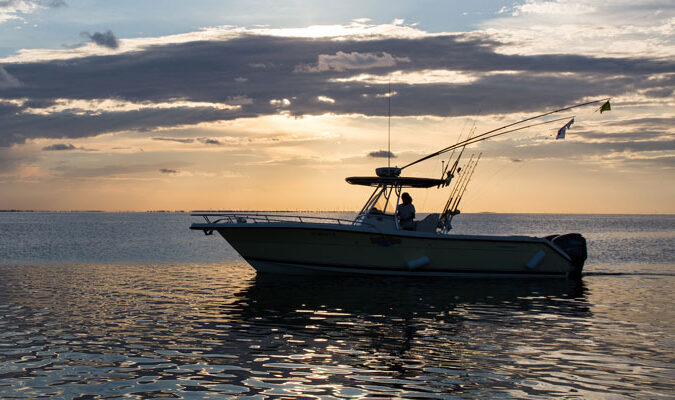
Overview
Local ecological knowledge (LEK) refers to the knowledge of local people associated with a specific area that is gained over log periods of time and often concerns relationships between humans and their environment. LEK is a valuable source of information about animals, landscapes, natural processes, and human interactions; however, this type of information is sometimes overlooked in data gathering missions. Fishermen are one community that holds extensive LEK in Texas, as many fishing guides and anglers have been fishing the coast for over twenty or thirty years and have witnessed firsthand many of the changes that have affected Texas’ coastal ecosystems.
With funding received from the National Sea Grant Office, Texas Sea Grant (TXSG) created the Coastal Monitor Program (CMP) in January 2021 with the goal of documenting changes occurring on the Texas coast by amplifying the voices of local experts – fishermen who have been fishing Texas coastal waters for decades. Known as “coastal monitors”, these fishing guides reported their observations of historical, ongoing, and acute changes that have occurred in the bays in which they fish.
The Coastal Monitors reported their observations of new and ongoing processes affecting bays from Galveston to the Lower Laguna Madre, including:
- Changes to:
- Habitats and vegetation
- Shorelines
- Fisheries and wildlife
- Water depth and flow
- Water quality
- Impacts from:
- Human uses of natural resources
- Natural disasters
Monitors shared their insights through 53 online observation logs they submitted to Texas Sea Grant. Two annual meetings were held to share the collected information with the Coastal Monitors, to identify trends affecting the coast, and to discuss management, research, and outreach recommendations.
Monitors reported the following observations:
- Increased frequency of extreme weather events, including droughts, floods, and freezes over the past few years.
- Increased human activity throughout the coast, including boat traffic, more frequent fishing tournaments, and more people using the same coastal spaces. Activity was observed to escalate at the onset of the COVID-19 pandemic.
- Significant erosion of shorelines and islands within coastal bays, such as Aransas Bay, Copano Bay, and the Lower Laguna Madre. Observations included shrinking and submerging islands and loss of marsh grasses.
- Rising water levels throughout the coast, particularly in the Coastal Bend. Observations included boaters being able to access areas that they previously couldn’t, and more regular flooding of coastal infrastructure.
- Observations align with documented sea level rise, which has increased by 12” in Rockport and 10” in Galveston from 1992 –20231 and is projected to rise another 1.5 ft. by 20501.
- Impacts of Winter Storm Uri in February 2021. Observations included considerable mortality of black mangroves coast-wide and varying impacts to fish such as Spotted Seatrout, Red Drum, and non-gamefish species.

Boat cruising in the bay
Gallery
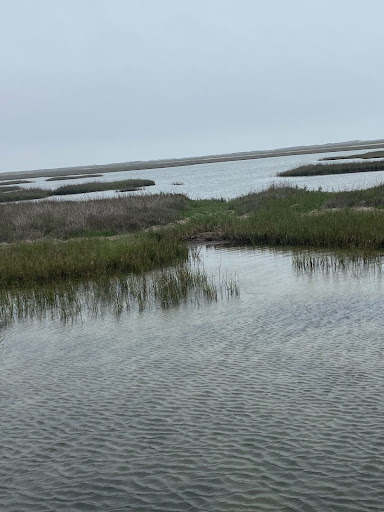
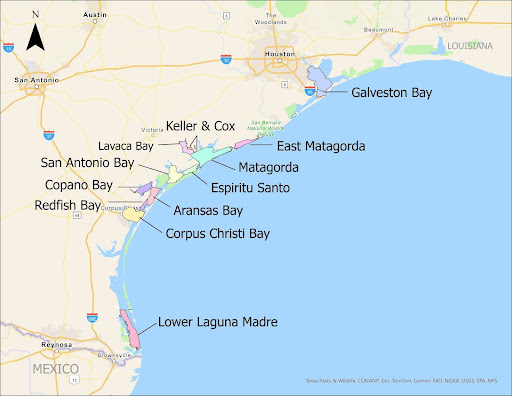
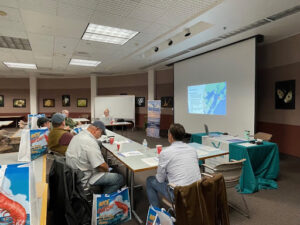
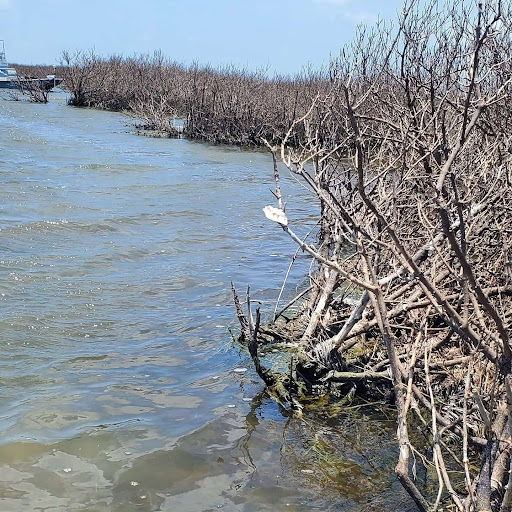
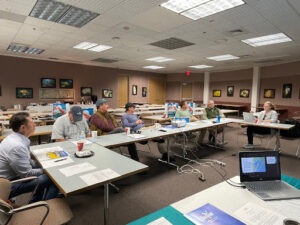
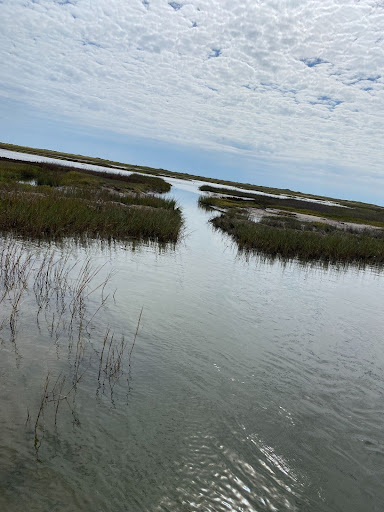
Contact
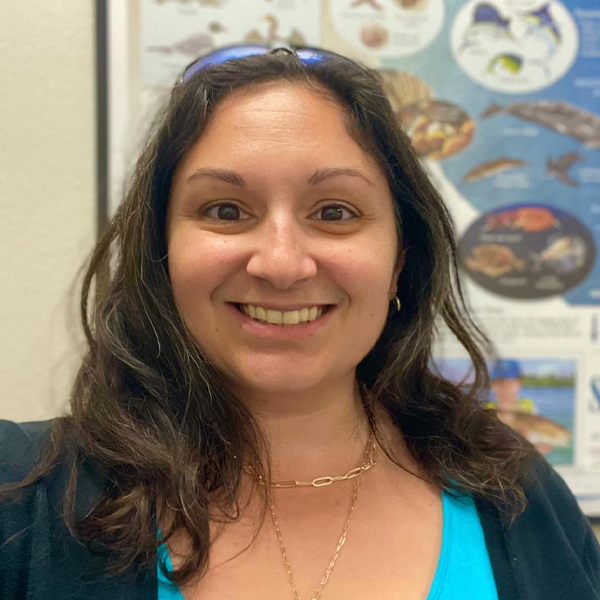
Alexis Sabine
Assistant Program Director, Fisheries and Aquaculture Corpus Christi, Texas- asabine@tamu.edu
- (361) 825-3460
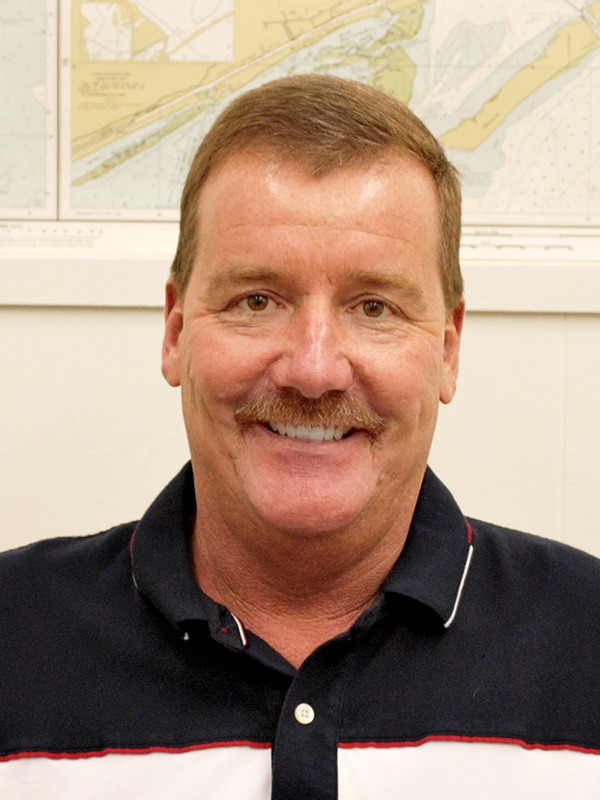
R.J. Shelly
Coastal and Marine Extension Agent, Calhoun County- rj.shelly@tamu.edu
- (361) 552-9747
